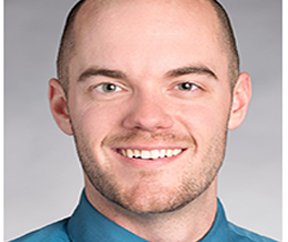
Collaborative Assessment and Management of Suicidality (CAMS) Training – Day 2: Day 2
Information
Date & Time
-
-
Learning Objectives
Participants will be able to:
-
Summarize the 4 tenets of the CAMS philosophy.
-
Develop a CAMS Stabilization Plan.
-
Identify 5 risk factors associated with suicidal thoughts, feelings, and behaviors.
-
Utilize assessment skills to complete a collaborative suicide risk assessment.
-
Complete a Suicide Status Form (SSF) in role play sessions.
-
Apply suicide focused treatment skills.
-
Complete a CAMS Therapeutic Worksheet (CTW).
Educational Goal
Description
This free, 2-day presentation will introduce clinicians to the Collaborative Assessment and Management of Suicidality (CAMS) framework. Clinicians will learn about the research supporting this evidence-based assessment and intervention and its place in the context of broader suicide prevention efforts (Day 1). Then, they will have the opportunity to consider its clinical applications for patients via role play and demonstration exercises (Day 2). Participants should attend both days of the training.
Target Audience
- Counselor
- Marriage & Family Therapist
- Psychologist
- Social Worker
- Substance Use Disorder Professionals
Presenters

Raymond P. Tucker is an associate professor of psychology at Louisiana State University and licensed clinical psychologist. He teaches undergraduate courses in psychology, graduate courses in clinical psychology, and founded the LSU Mitigation of Suicidal Behavior research laboratory. As a clinical assistant professor of psychology at LSU Health Sciences Center, Baton Rouge, he trains medical staff/trainees in suicide-specific evidence-based assessment and intervention protocols. Raymond completed his B.A. in psychology from Lawrence University in Appleton Wisconsin in 2010. He completed his M.S. (2012) and Ph.D. (2017) in clinical psychology at Oklahoma State University. He completed his doctoral clinical internship at VA Puget Sound in Seattle, WA. Raymond’s research broadly focuses on the enhancement of theoretical models of suicide and suicide risk assessment tools. His work has been funded by the National Institute of Mental Health (NIMH), Health Resources and Services Administration (HRSA), Scattergood Behavioral Health, and the Franciscan Ministries. In 2020, he was named American Association of Suicidology’s Citizen Scientist for the role he has played in training his local community and LSU’s Rising Faculty Research Award for his contributions to academic psychology. Raymond is a consulting editor for the academic journals Suicide and Life-Threatening Behavior and Archives of Suicide Research. Raymond also serves as a consultant for Collaborative Assessment and Management of Suicidality (CAMS) Care and provides trainings in the evidence-based suicide prevention framework to behavioral health providers across the world. In his role as director of the National Suicidology Training Center, Raymond provides trainings on a series of suicide-specific interventions, including suicide safety planning, postvention programming, and motivational interviewing for suicide prevention.
Financially Sponsored By
- Louisiana Department of Health - Office of Behavioral Health